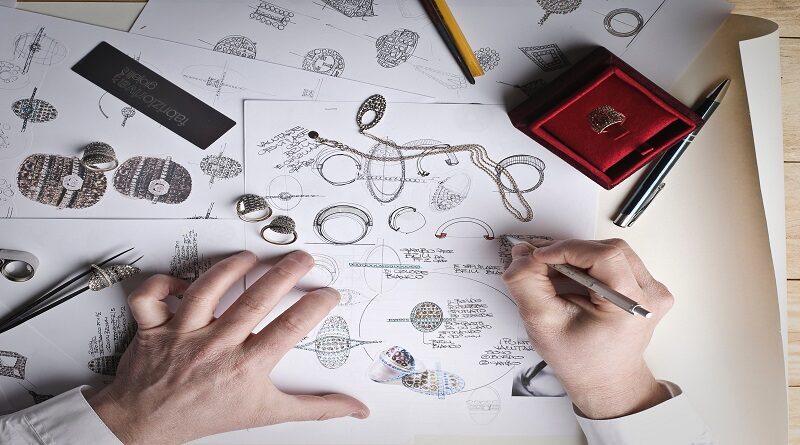Postgraduate courses in Jewellery Design
Jewellery is a beautiful and often sentimental thing many people have that has much value in their lives whether they have a ring passed down through generations or they just simply love the personalised value of your own jewellery.
Jewellery designers play the vital role in producing personal pieces and it is quite a skill to have. Without their skills we wouldn’t have our beloved necklaces or fancy earring. Do you have an interest in taking your career in this direction? We might just have the perfect courses for you.
What is jewellery design?
Jewellery design is the art and profession of using metals, gems and other materials to create jewellery such as earring, necklaces, rings, bracelets and so on.
What does a jewellery designer do?
A jewellery designer requires creativity, imagination and technical knowledge. Quite a lot of jewellery designers work as freelancers or inherit family businesses. Coming into the profession or starting out you will generally work as a salaried employee. You will work with customers in order to find their ideal designs and jewellery.
Not only will you design and produce jewellery but you may also have to fix and repair old jewellery. Duties carried out include preparing moulds for casting metal, mounting, stamping, welding, soldering and polishing. You may also carry out specialist tasks such as engraving, enamelling and electroplating.
Courses
There are many courses on offer in the area across the UK. Some courses offer the opportunity to study either part time or full time. Universities may have certain restrictions in place due to Covid-19 and may offer courses online. The majority of courses available under this heading are related to landscaping. There are a number of courses available in landscaping of specific areas. Courses available include:
Design (Jewellery)
A postgraduate course in this area will give you the opportunity to explore your creative abilities and use your imagination to create some designs. You will explore the evolving boundaries of these different disciplines and look at different traditions when it comes to jewellery. This course is perfect for those with an interest in single artefacts, mass-market delivery and all stages in between. Modules include exploring and designing, design and professional practice and evaluation and resolution
Fine Jewellery Design
These postgraduate courses are ideal for those who are looking to advance their skills and gain expertise in the design and development of modern and fine jewellery for the luxury industry. Modules include jewellery techniques, collection and portfolio, research methods, industry placement, contextual and cultural studies and jewellery design and culture. Students will gain the relevant skills and knowledge to work in the industry and also gain hands-on experience.
There are also courses available in Design (Jewellery and Metalwork).
Entry requirements
Entry requirements may differ from course to course or university to university. Therefore, it is important to research your specific course in detail to ensure you meet the entry requirements. As these courses are postgraduate courses, you will need a bachelor’s degree. Some courses may accept a 2.2 degree while others will require a 2.1.
Career Options
Career options in this area include:
- Jewellery designer
- Product manager
- Collection
- Illustrator
Salary
Your salary can be impacted by a few different things. These include your specific employment, your location and experience. The salary of a jewellery designer can start around £16,000 and with experience, can range anywhere between £20,000 to £50,000. It is believed the average salary of a jewellery designer is around £35,000. All figures are based on estimates and are intended to be used as a guide only.
Skills and requirements
Skills and requirements helpful in this area include:
- Creative thinker
- Innovative
- Create a vision
- Apply knowledge to designs and production
- Time management skills
- Organisation skills
- Ability to work well with others
- Pay attention to detail
- Artistic and drawing ability
- Computer design skills
- Customer service
- Work well under pressure




